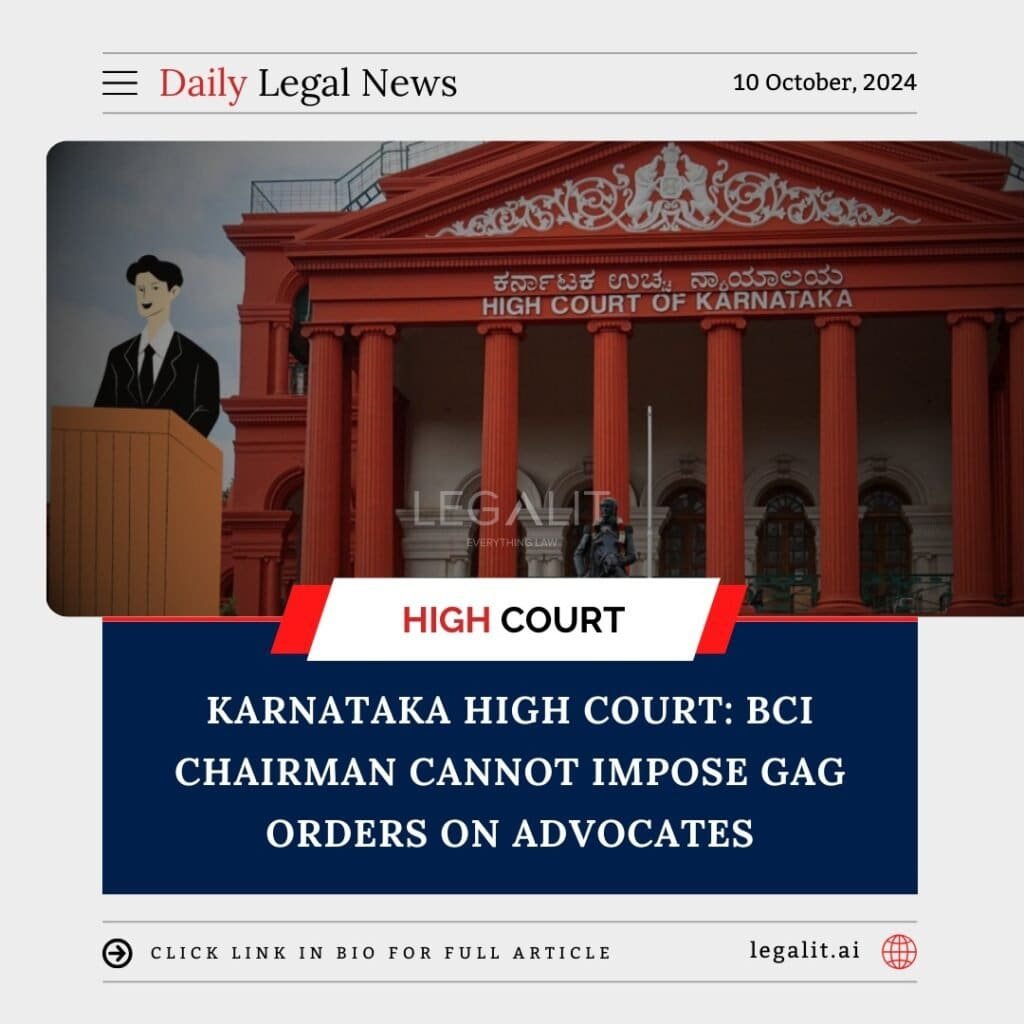
Background of the Case
In a significant ruling, the Karnataka High Court addressed the authority of the Chairman of the Bar Council of India (BCI) in issuing gag orders against advocates. The case arose from an incident where the BCI Chairman attempted to restrict certain advocates from making public statements, claiming it was necessary to maintain the dignity of the legal profession. This led to a legal challenge questioning the extent of the BCI Chairman’s powers and whether such an action was constitutionally permissible.
Court’s Ruling and Reasoning
The Karnataka High Court, in its judgment, held that the BCI Chairman does not possess the authority to impose gag orders on advocates, as it infringes upon their right to freedom of speech. The court emphasized that while advocates are expected to uphold the dignity and ethics of the legal profession, they are still entitled to express their views publicly, provided such statements do not violate the law.
The court noted that the power to regulate professional conduct does not extend to curbing the fundamental rights of individuals. The ruling clarified that any attempt to restrict an advocate’s speech must be in line with the constitutional framework, which guarantees the right to freedom of speech under Article 19(1)(a) of the Indian Constitution.
Implications of the Judgment
The ruling has wide-reaching implications for the legal community. By establishing that the BCI Chairman cannot arbitrarily silence advocates, the judgment reinforces the importance of balancing professional conduct with constitutional freedoms. This decision serves as a reminder that legal authorities cannot overstep their mandate by infringing on fundamental rights, even under the guise of maintaining professional decorum.
The judgment is likely to have a positive impact on ensuring that advocates can express their opinions on public matters, contributing to a more transparent and open legal discourse.
Need for Reforms in Legal Oversight
While this case highlights the limits of the BCI’s authority, it also raises questions about the need for clearer regulations concerning the role of professional bodies in managing public statements made by advocates. It may be beneficial for the BCI to revisit its guidelines to ensure they are aligned with constitutional principles while still promoting the ethical conduct of advocates.
Furthermore, there is a need for reforms in the way the legal profession is regulated, particularly in terms of balancing professional ethics with advocates’ rights as citizens. Striking this balance would help maintain public trust in the legal system while protecting the rights of legal practitioners.
Conclusion
The Karnataka High Court’s ruling that the BCI Chairman cannot pass gag orders against advocates is a landmark decision, reaffirming the constitutional right to free speech. It establishes important precedents regarding the limits of regulatory powers within the legal profession, ensuring that advocates retain their freedom of expression. At the same time, the decision underscores the need for the legal community to adhere to ethical standards without infringing on individual rights.